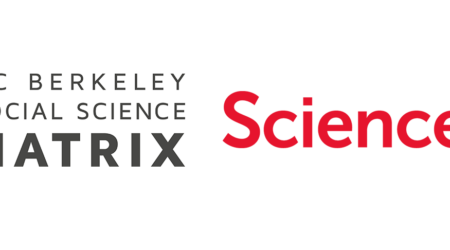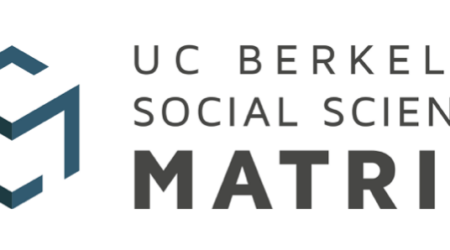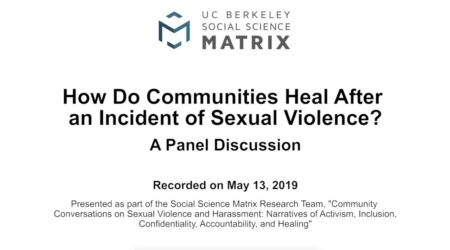Social Science Matrix is pleased to announce the recipients of the 2019-2020 Erasmus+ Mobility Grants, which provide funding for collaborative research and training between faculty members, graduate students, and staff members from the UC Berkeley College of Letters and Science and Freie Universität, Berlin (FUB), a leading research university in Berlin, Germany.
Erasmus+ grants are awarded by the European Union (EU); all mobility projects under Erasmus+ aim to help individual learners acquire skills to support their professional development and deepen their understanding of other cultures. Grants awarded to faculty and staff members enable funding for up to two weeks of exchange; grants awarded to graduate students provide up to six months of funding.
“This program is part of a growing connection between two of the world’s greatest public universities—UC Berkeley and Freie Universität Berlin,” says Maximillian Auffhammer, George Pardee Jr. Professor of International Sustainable Development at UC Berkeley, who helped initiate this new partnership. “The exchange of ideas is best achieved through the exchange of people.”
Following a cross-institutional review by a panel of faculty members and administrators, nine graduate students, faculty, and staff members were selected to receive Erasmus+ grants for 2019-2020. Grantees were selected based on a variety of factors, including academic merit and professional experience. Grants are also focused on supporting international experiences for people who have not spent significant time abroad previously.
Below are brief profiles of the successful grantees, who are listed in alphabetical order by their names, along with their home institutions and grant type (staff, faculty, or graduate research).
Oyuna Baldakova, FUB, Graduate Research
A third-year PhD candidate at the Graduate School of East Asian Studies at FUB, Oyuna Baldakova is writing a dissertation entitled, “Win-Win on the Local Level: Study of Host Countries Institutions and Linkage Effects of the Belt and Road Initiative in Kazakhstan and Kyrgyzstan.” Her research examines China’s participation in international development via its overseas investments, namely the Belt and Road Initiative (BRI), and its potential consequences for the economic development in Central Asia. She will use an Erasmus+ grant to visit UC Berkeley during the Spring 2020 semester and “interact and collaborate with leading scholars from the variety of social sciences at UC Berkeley,” while also “learning more about the North American academic life,” she wrote in her proposal. She plans to collaborate with Professor You-tien Hsing, Chair of the Center for Chinese Studies at the Institute of East Asian Studies, as well as scholars from Berkeley’s Center for Silk Road Studies, the first university center for Silk Road study in North America. “During my stay at Berkeley, I hope to enhance and finalize my dissertation project by presenting the preliminary results of my study in formal and informal settings,” Baldakova wrote in an email interview. “I believe that my stay will promote even closer cooperation between the two universities in the fields of East Asian and Eurasian Studies and provide the possibility to work on joint projects.”
Barbara Burger, FUB, Staff
A staff member with Freie Universität, Berlin’s Office of International Affairs, Barbara Burger used an Erasmus+ Mobility Grant to learn about student advising and student recruitment strategies within UC Berkeley’s Study Abroad Office. Through meeting with campus advisors in select UC Berkeley departments, as well as shadowing staff members in the Study Abroad office, she developed her understanding of how study abroad could be further integrated into the academic lives of students at both universities. “Through the training at UC Berkeley, I was able to achieve a better understanding of academic requirements at the UC for our students, which led to improvement of my skills in regard to students’ academic counseling,” Burger explained in an email interview. “During the meetings with the marketing department, it was also possible to exchange new ideas for student recruitment. For me, it was a wonderful experience and, apart from the professional outcomes, I gained insight into life on the UC Berkeley campus, from which we welcome a great number of students to our Berlin program every year.”
Julia Glathe, FUB, Faculty
Julia Glathe, a PhD Student in Sociology and a Research Fellow at the Institute for East European Studies at Freie Universität Berlin, is writing a dissertation entitled “The Contradictory Nature of Russia’s Migration Regime: Dynamics of Conflict and Development in a Non-Western and Authoritarian Context.” Her work seeks “to understand how migration as a political object is dealt with in Russian society and, thus, in a non-Western and authoritarian political context,” Glathe wrote in her proposal. She received an Erasmus+ Mobility Grant to visit UC Berkeley and work with John Lie, C.K. Cho Professor of Sociology at UC Berkeley. “In my dissertation, I examine the development and conflict dynamics of the Russian migration regime,” she wrote in an email interview. “Through my stay at UC Berkeley and the exchange with other migration researchers, I hope to be able to better classify the Russian case by comparing it with other immigration states: What distinguishes an authoritarian from a liberal migration regime? To what extent do conflict dynamics resemble and differ? I see the events of the Berkeley Interdisciplinary Migration Initiative (BIMI) as particularly profitable to advance my project.”
Stefan-Ludwig Hoffmann, UC Berkeley, Faculty
As Associate Professor of History at UC Berkeley, Stefan-Ludwig Hoffmann’s research centers on an examination of global history through the concept of time. Drawing upon the work of German historian Reinhart Koselleck, Hoffmann is exploring the “synchronicity of the non-synchronous,” a term used to “explain the popular appeal of Nazism for those social classes in Weimar Germany considered to be ‘out of sync’ with the particular historical stage of late capitalism.” Hoffmann received an Erasmus+ Grant to collaborate with Sebastian Conrad at the Freie Universität Berlin’s Center for Global History, who is “one of the leading global historians in the world today,” according to Hoffmann. “I plan to share a first draft chapter with him and other colleagues at the FU’s Center for Global History. In addition, we intend to use my research stay at the FU to sketch out a possible collaborative project for a large UCB-FU research grant on ‘Global Temporalities,’ involving students and faculty at both institutions.”
Seth Holmes, UC Berkeley, Faculty
Seth M. Holmes, Associate Professor of Medical Anthropology and Public Health at UC Berkeley, will use an Erasmus+ Mobility Grant to develop a working group of social scientists who work on mobility, migration, health, and inclusion/exclusion. Holmes will present his research on Indigenous Mexican immigrant youth in the United States at FUB’s Institute of Social and Cultural Anthropology, and organize a future workshop entitled “Migration, Health, Markets and Inclusion/Exclusion,” with an eye toward developing a special theme journal issue and grant application for ongoing work. “We will consider national and transnational markets, forced immigration and medical tourism, and finally citizenship and ethnicity segmented labor markets and their potential production of health, sickness, and disease,” Holmes explained in his proposal.
Jordan Jacobs, UC Berkeley, Staff
As Head of Cultural Policy and Repatriation for UC Berkeley’s Phoebe A. Hearst Museum, Jordan Jacobs is responsible for ensuring that the museum adheres to ethical standards and regulations related to the acquisition and management of cultural objects. Jacobs received an Erasmus+ Mobility Grant to collaborate with representatives from Berlin’s new Humboldt Forum Museum and the Dahlem Museums, whose collections largely date to German’s colonial era. “The world’s museums have reached in an inflection point in the realm of cultural policy,” Jacobs wrote in an email interview. “Both UC Berkeley and the Freie Universität are now central to a revived, international conversation about collecting ethics and colonialism, which requires—but does not always inspire—nuance, negotiation, and good faith attempts to mitigate between multiple, often contradictory worldviews…. I am grateful for the opportunity to examine these issues with my colleagues in Berlin, with a goal of developing best practices.”
Yan Long, UC Berkeley, Faculty
Yan Long, Assistant Professor of Sociology at UC Berkeley, researches the evolution of international institutions and how they shape conflict among local communities and states. Long received an Erasmus+ Mobility Grant to collaborate with scholars at Freie Universität, Berlin’s Institute of Chinese Studies, as she is building a network of researchers around the world to conduct comparative cross-city research to shed light on the consequences of civic life for the vitality of urban areas. “The visit will help me to develop international collaborative working relationships with the vibrant scholarly community of civil society and state studies involving multiple disciplines at FUB,” she wrote.
Franziska Neudeck, FUB, Staff
UC Berkeley and FUB are home to two of 352 global libraries that have been designated as “United Nations Depository Libraries,” which manage the distribution of United Nations documents and publications to users around the world. Franziska Neudeck, a staff member in the Acquisition Department & Subject Cataloguing Team at Freie Universität, Berlin’s University Library, used an Erasmus+ Mobility Grant to collaborate with UC Berkeley staff and learn about the UC library system, including how it fulfills its role as a UN Depository Library. During her visit, she focused on comparing and contrasting the different work processes used in the libraries, and on collaborating with colleagues like Jim Church, UC Berkeley’s Librarian for Economics and International Government Information. “For me as a librarian from Germany, the Erasmus+ Mobility Grant was a great experience, and it gave me the chance of a lifetime to evolve personally and professionally at a unique campus of the UC,” Neudeck said in an email interview. “I learned a lot from the colleagues in Berkeley during my stay and they supported me in every way, first of all Jim Church. This opportunity for new insights will have a lasting effect on my future work.”
Mariel Supina, UC Berkeley, Graduate Research
A third-year doctoral student in mathematics at UC Berkeley, Mariel Supina studies algebraic combinatorics and discrete geometry. “Algebraic combinatorics is a field in which techniques from abstract algebra are used to enumerate objects of interest,” she explained in her proposal. “Discrete geometry involves the study of polytopes, or high-dimensional shapes with flat sides.” She will use an Erasmus+ Mobility Grant to work with the discrete geometry group at FU Berlin, which she explained in her proposal is “one of the world’s top locations” for her field of research. She is also interested in supporting efforts to promote equity and inclusion in faculty hiring, admissions, and the graduate program at FU Berlin. “I am very grateful for the Erasmus+ Mobility Grant for giving me the opportunity to get to know my colleagues in the Discrete Geometry group at FU Berlin,” Supina wrote in an email. “I am looking forward to beginning new mathematical collaborations with other graduate students.”
Visit this page to learn more about this year’s grant process, and subscribe to the Matrix newsletter for updates on future opportunities to participate.



